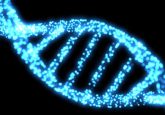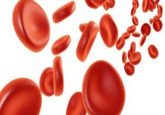Determination of synthetic lethal interactions to provide therapeutic direction to end aggressive prostate cancer

Emergence of aggressive prostate cancer (PCa) phenotypes resistant to current available therapies is a significant clinical problem, and novel therapeutic strategies are urgently required. Androgen receptor (AR) action is a key mediator underlying development and progression of PCa. For this reason, androgen deprivation therapy has been a primary standard of care for men for over 70 years with symptomatic, advanced PCa [1]. Unfortunately, ensuing resistance to therapy is inevitable, and men will eventually develop castration-resistant PCa (CRPC). Further delineation of underlying mechanisms driving CRPC led to the finding that CRPC is not androgen independent, but continues to rely on androgen and AR activity. This knowledge has resulted in the development of second-generation agents which either target the AR or the synthesis of extra-gonadal androgens [2]. More specifically, the agents abiraterone acetate and enzalutamide received US FDA approval based on clinical trial data displaying modest survival benefit compared with placebo in men with CRPC [3].
Click here to view the full article.




